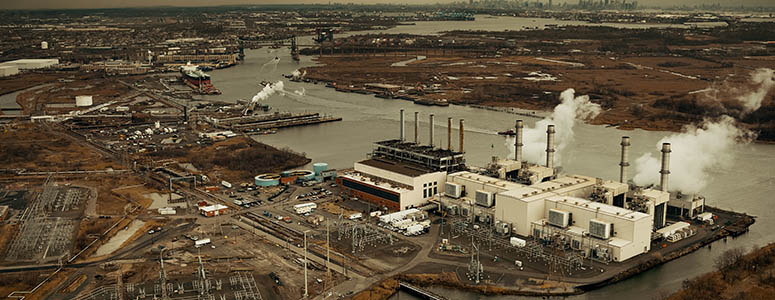Role of Agitators in Wastewater Treatment Plants
Wastewater treatment is one of the most vital processes in ensuring public health and environmental safety. With industries and municipalities generating increasing volumes of wastewater, efficient and reliable treatment technologies are in high demand. Among the many components that contribute to effective wastewater treatment, agitators play a critical role in mixing, homogenizing, and optimizing the overall treatment process. Whether used in aeration tanks, sludge digesters, or chemical dosing chambers, agitators help maintain consistency and efficiency across all treatment stages. This blog explores the crucial functions of agitators in wastewater treatment plants and highlights how choosing the right agitator manufacturer can make a significant difference.
Understanding Agitators in Wastewater Applications
An agitator in a treatment plant is a mechanical device designed to keep liquids and solids in motion. Its main function is to mix wastewater with various treatment chemicals or biological agents to accelerate the purification process. The design, speed, and type of agitator can vary based on the viscosity of the fluid, tank volume, and specific treatment requirements. From low-speed paddle agitators to high-speed turbine agitators, each has its own purpose in the treatment sequence.
Why Agitation Is Crucial in Wastewater Treatment
In wastewater treatment, mixing is not a luxury—it is a necessity. Agitation ensures that oxygen is distributed evenly in aeration tanks, helping microorganisms break down organic matter more effectively. It also helps in dispersing coagulants and flocculants uniformly during chemical treatment, which enhances the settling and removal of suspended particles. In anaerobic digesters, agitators prevent solids from settling at the bottom and promote microbial contact, improving biogas production and reducing sludge volume.
Proper agitation improves the efficiency of biological treatment processes and reduces energy costs by optimizing aeration. It also minimizes the risk of foul odors, dead zones, and equipment failure caused by sediment accumulation. Therefore, an agitator for wastewater treatment is not merely an accessory; it is a core component that supports operational stability and compliance with environmental regulations.
Applications of Agitators Across Treatment Stages
Agitators are used in multiple stages of the wastewater treatment process, including:
- Equalization Tanks: Here, agitators homogenize the flow and composition of incoming wastewater. This helps create a consistent influent for downstream processes.
- Aeration Tanks: Agitators enhance oxygen transfer and mixing, improving microbial activity and decomposition of organic waste.
- Chemical Dosing Chambers: In these tanks, agitators disperse chemicals like lime, alum, and polymers to ensure even reaction and effective contaminant removal.
- Sludge Treatment Units: Sludge digesters and thickeners use agitators to keep solids suspended, aiding digestion and preventing sediment buildup.
In each of these applications, the choice of agitator impacts both process efficiency and equipment longevity. High-quality agitators reduce wear and tear on other components by preventing blockages, corrosion, and sedimentation.
Choosing the Right Agitator for Wastewater Treatment
Selecting the ideal agitator depends on several factors such as fluid characteristics, tank dimensions, and process objectives. For example, highly viscous sludges require robust agitators with higher torque and specially designed impellers to ensure thorough mixing. On the other hand, aeration basins benefit from slow-speed, energy-efficient agitators that maximize oxygen distribution with minimal turbulence.
The material of construction is another important consideration. In wastewater environments, agitators must withstand corrosion from acids, alkalis, and biological waste. Stainless steel or coated materials are commonly used to prolong life and ensure uninterrupted performance.
Additionally, energy consumption is a key factor. Advanced industrial agitator manufacturers offer models that balance mixing efficiency with low power usage, contributing to the sustainability goals of treatment plants.
Technological Advancements in Agitator Systems
Modern agitators come with smart features like variable frequency drives (VFDs), automated control systems, and remote monitoring. These technologies allow operators to adjust mixing speeds based on real-time process data, improving energy efficiency and reducing operational costs.
Computational Fluid Dynamics (CFD) modeling has also revolutionized agitator design. It enables manufacturers to simulate flow patterns and optimize impeller configurations for specific treatment applications. This precision engineering ensures consistent performance, regardless of load fluctuations or seasonal changes in wastewater composition.
Benefits of Using Quality Agitators in Treatment Plants
Reliable agitators ensure continuous operation, which is critical for treatment plants that operate 24/7. A well-designed agitator system prevents downtime, improves throughput, and ensures compliance with discharge norms. Quality agitators also extend the life of tanks, pipes, and pumps by preventing sediment buildup and corrosion.
Furthermore, investing in an efficient agitator reduces maintenance frequency and spare parts costs. Over time, this translates into substantial savings and a higher return on investment. With stricter environmental regulations and increasing demand for water reuse, treatment facilities must rely on high-performance agitators to maintain their standards.
Dosimix Technologies – Best Agitator Manufacturer Ahmedabad, India
When it comes to sourcing dependable agitator systems, Dosimix Technologies stands out as a trusted name among industrial agitator manufacturers. Based in Ahmedabad, India, Dosimix offers a wide range of custom-engineered agitators tailored for wastewater and industrial applications. Their expertise in designing robust, corrosion-resistant, and energy-efficient agitators has earned them recognition as the best agitator manufacturer in Ahmedabad, India.
Dosimix Technologies combines engineering excellence with deep industry knowledge to deliver solutions that improve process performance while reducing operational costs. With a customer-centric approach and commitment to innovation, they are the ideal partner for wastewater treatment plants seeking reliable agitator solutions.
Final Thoughts
Agitators are indispensable in the smooth and effective operation of wastewater treatment plants. From enhancing microbial activity in aeration tanks to improving sludge digestion and chemical dosing, agitators contribute significantly to the overall efficiency and reliability of the process. As environmental standards become more stringent and operational efficiency becomes more critical, the importance of choosing the right agitator treatment plant solutions continues to grow.
By selecting high-quality, tailor-made agitators from experienced manufacturers like Dosimix Technologies, plant operators can ensure optimal mixing, reduced energy usage, and long-term system integrity. The right agitator for wastewater treatment is not just a piece of machinery—it’s a strategic investment in cleaner water and a healthier planet.


